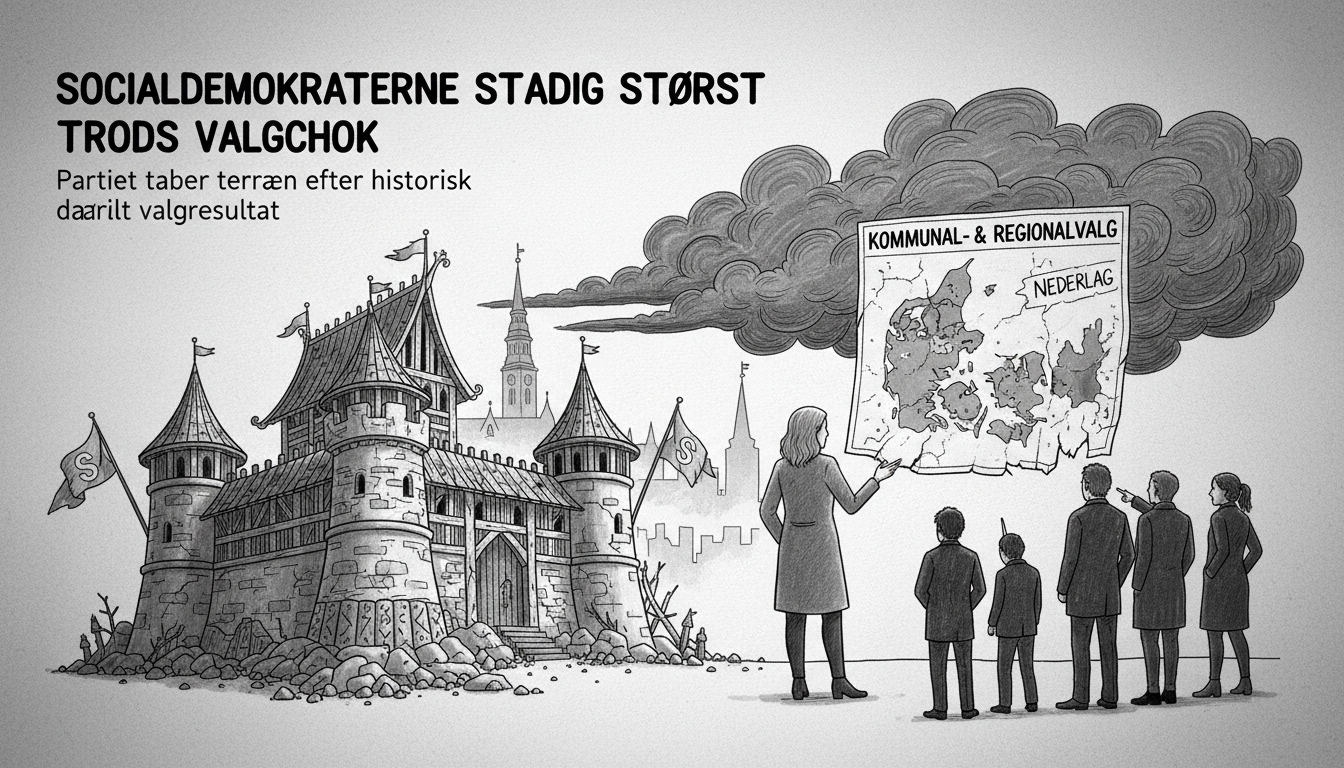Denmark's Social Democrats have maintained their position as the country's largest political party despite suffering significant losses in municipal and regional elections. The party secured 23.2 percent of votes in local elections, representing a substantial decline of 5.2 percentage points from their previous results.
This electoral performance marks the Social Democrats' weakest showing in recent memory. The party now holds 599 seats nationwide, a decrease of 156 representatives. Prime Minister Mette Frederiksen acknowledged the disappointing results during her party's election event in Copenhagen.
She stated the party had anticipated some decline but admitted the losses exceeded expectations. The Prime Minister noted the increasing challenge of being a broad people's party that represents all Danes. She promised careful analysis of the underlying causes in coming days.
The Liberal Party secured second place with 17.9 percent of votes, also experiencing a decline of 3.3 percentage points. They now hold 521 seats nationally, 99 fewer than before the elections. The Conservative People's Party captured third position with 12.7 percent support.
The Socialist People's Party emerged as one of the few winners, gaining 3.5 percentage points to reach 11.1 percent support. This placed them in fourth position nationally.
Regional election results mirrored the local trend, with Social Democrats receiving 22.3 percent support, down 5.9 percentage points. The Liberal and Conservative parties again secured second and third positions respectively.
In the capital region, the Social Democrats suffered particularly heavy losses. The party received only 12.7 percent of votes, dropping 4.5 percentage points. The Red-Green Alliance became the largest party in Copenhagen with 22.1 percent support.
Traditional Social Democratic strongholds showed dramatic shifts. Frederikshavn, previously a party bastion, saw support plummet from over 57 percent to just 26.1 percent. The Liberals became the largest party there with 30.2 percent.
The Social Democrats failed to secure any representation in Fanø and Læsø municipalities, highlighting the breadth of their electoral challenges.
This election outcome reflects broader European trends where traditional center-left parties struggle to maintain their broad coalition of voters. The results suggest Danish voters are increasingly fragmenting across the political spectrum, making majority governance more challenging.
The substantial losses will likely force the Social Democrats to reconsider their political positioning and policy priorities. Coalition building becomes increasingly complex when traditional major parties lose ground to smaller competitors.
Danish municipal elections determine local representation across 98 municipalities, while regional elections shape healthcare and regional development policies. These results often serve as important indicators for national political trends.
International observers will watch how Denmark's political landscape evolves following these significant shifts in voter preferences. The fragmentation could impact everything from climate policies to immigration approaches in coming years.

